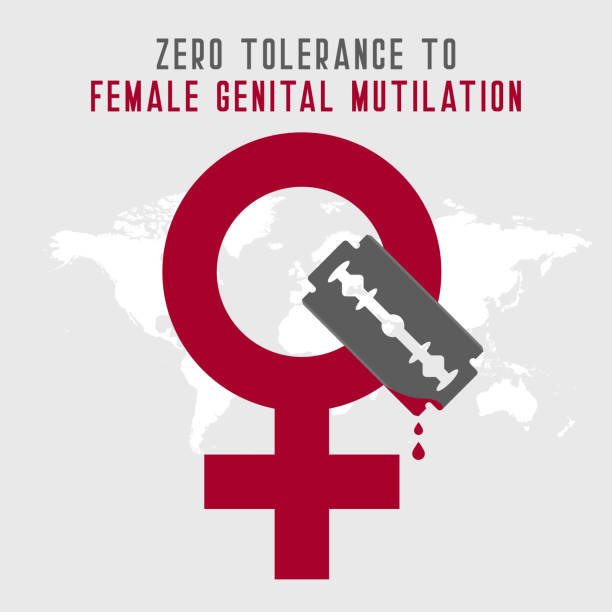A joint statement by UNFPA-UNICEF has warned that the world may miss the target of ending FGM by 2030 if urgent action is not taken.
This is as Nigeria joins the rest of the world to mark this year’s International Day of Zero Tolerance for Female Genital Mutilation, with the theme, Partnering with Men and Boys to Transform Social and Gender Norms to End FGM.
According to the statement, Female genital mutilation (FGM) remains widespread in Nigeria. With an estimated 19.9 million survivors, Nigeria accounts for the third highest number of women and girls who have undergone FGM worldwide, with the risk of cutting highest in the first 5 years (86% of girls circumcised before age 5 – National Demographic and Health Survey 2018).
It further states that” FGM prevalence in Nigeria is decreasing among women aged 15-49 according to data from the 2021 Multiple Indicator Survey (MICS) (18% to 15% 2016-17/2021). Similarly, the prevalence among girls aged 0-14 decreased from 25% to 8% during the same time period (MICS 2021). This significant decrease in prevalence among girls aged 0-14 is a welcome development, given that an estimated 86% of females aged 15-49 were subjected to FGM before the age of 5 (NDHS 2018). At the same time, 12 states had a prevalence higher than the national prevalence, ranging from 9% in Edo to 35% in Kwara and Kano.”
The UNICEF Nigeria Country Representative, Cristian Munduate, urged stakeholders to Partner with and engage men and boys to shift unequal power relations and challenge the attitudes and behaviours caused by gender inequality that leads to FGM.as well as Invest in national-level policies and legislation protecting the rights of girls and women, including the development of national action plans to end FGM.
He maintained that there is an urgent need for even more targeted and concerted efforts to turn our shared goal of ending FGM into a reality while calling for collaboration must with all stakeholders –including men and boys – to protect the millions of girls and women at risk and consign this practice to history.
UNFPA Resident Representative, Ulla E. Mueller, pointed out that, men and boys remain key partners in addressing gender inequalities and harmful practices as we all collaboratively join hands to deliver the global promise of eliminating FGM by 2030’,
The UNFPA-UNICEF global Joint Programme on the Elimination of FGM has supported over 3,000 initiatives within the last five years where men and boys actively advocate to bring an end to the practice. In Nigeria, since implementation began in 2018, UNJP has supported the engagement of 807 men’s and boys’ networks to actively advocate to bring an end to the practice. It has done this by providing opportunities and safe spaces for critical reflection on gender discrimination, power dynamics, positive masculinities, and comprehensive sexual and reproductive health education targeting men and boys, so they understand the consequences of FGM.

